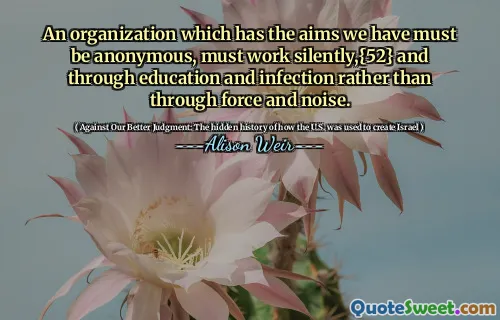Islamic lands did not emigrate willingly to Israel. In order to force them to leave, Giladi writes, Jews killed Jews. He goes on to say that in an effort to buy time to confiscate ever more Arab lands, Jews on numerous occasions rejected genuine peace initiatives from their Arab neighbors.{136}
In "Against Our Better Judgment," Alison Weir argues that the establishment of Israel involved significant coercion and violence. She states that many inhabitants of Islamic lands did not choose to leave voluntarily but were forced out, indicating that the struggle included severe measures, including the killing of fellow Jews to achieve these goals. This violence contributed to the complex dynamics surrounding the creation of Israel.
Additionally, Weir claims that there were numerous peace efforts initiated by Arab neighbors that were repeatedly rejected by Jewish leaders. This rejection seems to reflect a strategy aimed at extending territorial control, as they sought to acquire more land at the expense of the local Arab population. The theme of a calculated approach to land seizure runs throughout her analysis, highlighting the contentious nature of Israel's founding history.






